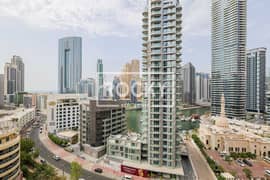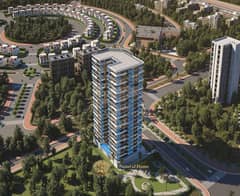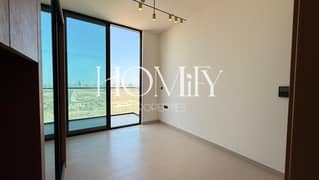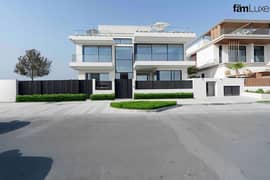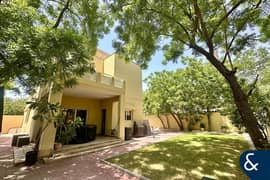How to buy a property in Dubai: A comprehensive guide
Investing in the thriving Dubai real estate market can be exciting and rewarding. But, it’s crucial to understand Dubai property buying rules before making the move. Whether you’re a seasoned investor or a first-time buyer, this comprehensive step-by-step guide to buying property in Dubai will equip you with the insights necessary to ensure a smooth property acquisition journey.
THE LEGAL LANDSCAPE: DUBAI PROPERTY BUYING RULES
Before we look into the steps to buy property in Dubai, here’s the information you need regarding Dubai property buying rules.
FREEHOLD AND LEASEHOLD OWNERSHIP
The UAE’s property laws welcome local and international investors, granting them the right to own property in designated freehold and leasehold areas.
Freehold ownership laws in Dubai grant you full, unrestricted property ownership, while leasehold allows you to own the property for a set period, typically up to 99 years.
Understanding the differences between freehold and leasehold property ownership in Dubai is essential to make an informed decision that aligns with your investment goals and long-term plans for purchasing a villa or an apartment for sale in Dubai.

- 1 BED
- |
- 1 BATH
- |
- 757 SQFT
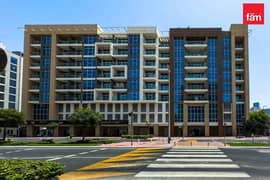
- 2 BEDS
- |
- 3 BATHS
- |
- 1294 SQFT

- STUDIO
- |
- 1 BATH
- |
- 412 SQFT
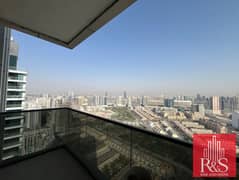
- 1 BED
- |
- 2 BATHS
- |
- 785 SQFT
LAWS FOR BUYING A PROPERTY IN DUBAI – HOW TO INVEST IN DUBAI REAL ESTATE
Want to know how to invest in dubai real estate? The main law governing property ownership in Dubai is Law No. 7 of 2006.
Article (4) of Law No. 7 of 2006 outlines who can buy and own property in Dubai. According to the law, you can purchase real estate anywhere in Dubai if you are:
- A UAE citizen
- A GCC citizen
Are you curious about how to buy property in Dubai as an expat? As per Dubai property buying rules, non-residents and foreign nationals can only purchase property in areas designated for foreign property ownership.
Article 3 of Regulation No. 3 of 2006 outlines that freehold property ownership is limited to specific areas, as the image below mentions.

When choosing between freehold and leasehold property ownership in Dubai, consider your long-term goals, investment objectives and budget. Freehold properties provide greater flexibility and potential for capital appreciation, while leasehold properties may offer lower purchase prices and higher rental yields.
LEGAL STEPS TO BUYING A PROPERTY IN DUBAI
‘How to purchase property in Dubai’ is relatively straightforward whether you’re looking for the perfect home or a lucrative real estate investment.
Before you proceed with the process, start your property search. Determine your budget and requirements. Consider factors such as property type, size, location and proximity to schools, hospitals, restaurants and transportation.
Working with a reputable real estate agent is crucial when buying property in Dubai. An agent can help you understand Dubai property buying rules, find suitable properties, negotiate prices and guide you through the legal and administrative processes. Also, don’t forget to check out the hottest properties on Bayut with a TruCheck™ badge for authenticity!
1. FORMULATING A CONTRACT BETWEEN THE BUYER AND THE SELLER
Once you’ve found the right property on Bayut, the first step involves initiating discussions with the seller to agree on the terms of the transaction. This includes negotiating the pricing, payment methods and any other relevant details.
CASH OR MORTGAGE?
When purchasing property in Dubai and the UAE, you have two options: pay cash or apply for a mortgage. The ability to negotiate is perhaps the biggest benefit when you buy a property on cash vs mortgage. Cash buyers have a better idea of their budget and can push for a lower price.
While the involvement of a real estate agent or lawyer is not mandatory at this stage, it’s crucial to draft a comprehensive contract that clearly outlines all the agreed-upon terms to avoid any future misunderstandings.
2. SIGNING THE AGREEMENT OF SALE
Once you’ve agreed on the terms, you must sign the official Dubai Real Estate Sale Agreement, called the Memorandum of Understanding (MOU) or Form F. This document can be downloaded from the Dubai Land Department (DLD) website and outlines the terms and conditions of the sale, including the purchase price, payment schedule and other relevant details.
Both you and the seller should sign Form F, one of the key RERA real estate forms, in the presence of a witness, typically at the Registration Trustee’s office.
Additionally, you’ll need to pay a 10% security deposit on the property, which will be returned to you upon completing the transaction.

3. APPLICATION FOR A NO OBJECTION CERTIFICATE
The buyer, seller, and real estate agent must meet at the developer’s office (e.g., Dubai Properties, Emaar Properties or any other property developers in Dubai).
The objective of this meeting is to apply and pay for a No Objection Certificate (NOC) to transfer the ownership. This certificate confirms no outstanding service charges or other obligations on the property.
Remember, Form F and NOC are key documents for buying property in Dubai.
4. INITIATING OWNERSHIP TRANSFER WITH DLD
With the NOC in hand, you’ll need to visit the office of Dubai Land Department (DLD) for the last legal step of buying a property in Dubai – to transfer the property’s ownership officially.
For the property transfer to take effect, you must have the following documents ready with you before visiting the DLD office:
- A manager’s cheque for the property price payable to the seller
- The original identification documents of the buyer and seller (Emirates ID, passport)
- The original NOC issued by the developer
- Signed Contract F (MOU)
Once the data is verified and the applicable fees are paid, the transfer will be processed, and you’ll receive a new title deed in your name as the new owner of apartments and villas for sale in Dubai.

- 5 BEDS
- |
- 4 BATHS
- |
- 4799 SQFT
CONSIDERATIONS FOR SUCCESSFUL PROPERTY PURCHASES IN THE DUBAI REAL ESTATE MARKET
When buying a property in Dubai, there are several key factors to keep in mind:
- Work with Registered Real Estate Agents: Ensure you only deal with agents registered with the Real Estate Regulatory Agency (RERA) to ensure compliance and professionalism.
- Translations and Attestations: Any documents written in a foreign language must be attested and submitted with certified translations into Arabic.
- Registration Timeline: Transactions must be registered within 60 days of signing the contract by both parties.
- Freehold Districts for Foreigners: Some prominent freehold districts where foreigners can buy property in Dubai include Arabian Ranches, Palm Jumeirah, Dubai Marina and Downtown Dubai.
Wonder how to buy an apartment in Dubai?
FAQS ABOUT DUBAI PROPERTY BUYING RULES AND MORE
HOW LONG DO THE LEGAL STEPS OF BUYING PROPERTY IN DUBAI USUALLY TAKE?
The entire process of buying property in Dubai can take two to ten weeks. It usually takes longer if the property is already mortgaged or purchased on the mortgage.
WHAT ARE THE ADMIN COSTS INVOLVED IN BUYING PROPERTY IN DUBAI?
The admin costs of buying property in Dubai comprise:
- Dubai Land Department fees – 4% of the property value + AED 430 for land or AED 40 for off-plan or AED 580 admin fee for apartments and offices
- Property Registration Fee
- Properties value below AED 500,000: AED 2,000 +5% VAT
- Properties value above AED 500,000: AED 4,000 + 5% VAT
- Fees for issuing the Title Deed – AED 250
- Agent’s fee of 2% of the property value
WHAT IS A TITLE DEED?
A title deed in Dubai is the official and legally binding proof of property ownership. This document outlines your rights as the property owner, including the right to use, mortgage, sell or lease the property.
WHAT IF I AM BUYING PROPERTY ON A MORTGAGE?
The legal steps will vary if you’re buying property on a mortgage (read more on how to get a mortgage in Dubai).
It would be best to get pre-approval on a mortgage before signing the sale agreement. Approval on the mortgage from the DLD is also required before applying for the NOC.
Extra fees include the Bank Mortgage Arrangement fee, which is 1% of the loaned amount. Moreover, there is a Property Valuation fee between AED 2,500 and 3,500 + 5% VAT.
You can read our comprehensive list of FAQs on Mortgage to get all your questions answered.
WHAT IF THE SELLER HAS AN EXISTING MORTGAGE ON THE PROPERTY?
If the owner sells a mortgaged property, the transaction becomes slightly complicated. In this case, the buyer must settle the original mortgage on the property in full before applying for the NOC. This situation is riskier for the buyer and entails more legal steps.
Wondering how to sell a mortgaged property in Dubai? Our guide has got you covered.

CAN FOREIGNERS BUY A PROPERTY IN DUBAI?
Given certain conditions, the emirate’s law allows non-resident foreign property ownership in Dubai.
Residents and non-resident foreigners can only buy properties in the designated freehold areas in Dubai. Some prominent freehold districts in Dubai include:
- Dubai Marina: Known for its waterfront apartments and luxury lifestyle.
- Palm Jumeirah: An iconic artificial island offering high-end villas and apartments.
- Downtown Dubai: Home to the Burj Khalifa and the Dubai Mall, with a mix of residential and commercial properties.
- Arabian Ranches: A family-friendly community with spacious villas and townhouses.
- Jumeirah Village Circle: A growing community with affordable apartments and townhouses.
Besides the conditions mentioned above, other rules for foreign property ownership in the UAE must be adhered to.
WHAT IS A TRUSTEE OFFICE IN DUBAI?
The Dubai Land Department authorises Trustee Centres or Trustee Offices in Dubai as intermediaries between the DLD and clients. They are responsible for verifying property documents, ensuring compliance with DLD regulations, and facilitating real estate transactions.
HOW TO BUY OFF-PLAN PROPERTY IN DUBAI?
You must secure the following steps to successfully off-plan property in Dubai:
- Determine your budget and desired property type
- Research developers and projects thoroughly
- Consult a specialised real estate agent and explore showrooms
- Secure a reservation with a deposit and sign the MoU
- Choose a flexible payment plan that suits your finances
- Complete the legal process by obtaining NOC, registering the property, and acquiring the title deed.
- Get mortgage pre-approval (if needed).
- Stay informed about progress, conduct a final inspection and address any defects.
Like any other financial decision, you must consider the pros and cons of buying off-plan property in Dubai. You can also learn more about the difference between Oqood and Title Deeds.
WHAT ARE THE MOST COMMON HOME-BUYING MISTAKES IN DUBAI?
Some top house buyer mistakes are rushing into a deal, lack of research and skipping inspection.
So, you have four simple sequential legal steps to buy property in Dubai. There have been over 111,034 sales transactions for apartments in Dubai in the past 12 months, indicating that the real estate market is continuing to grow steadily.
Want to know how to buy a house in Dubai? In the last 12 months, AED 135.2 billion worth of sale transactions for villas in Dubai were recorded, which shows that the investors have strong confidence in the market.
What does off-plan property mean and is it a good investment? The process for varies slightly. Either way, real estate investment is a substantial financial commitment. And its essential to be aware of the things to consider when buying property in Dubai to help you make an informed decision.
Foreigners can also invest in usufruct properties in the UAE. Discover our comprehensive guide to usufruct agreements and learn everything you need to know about this unique investment opportunity.
To learn more about the real estate market in the UAE, subscribe to MyBayut.


